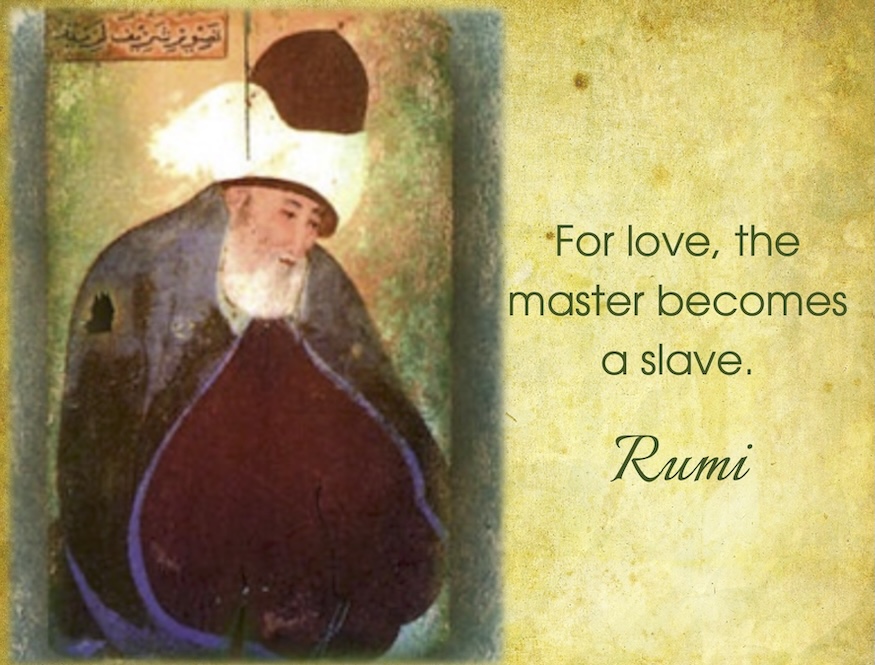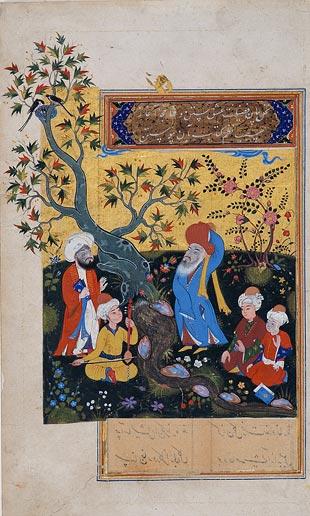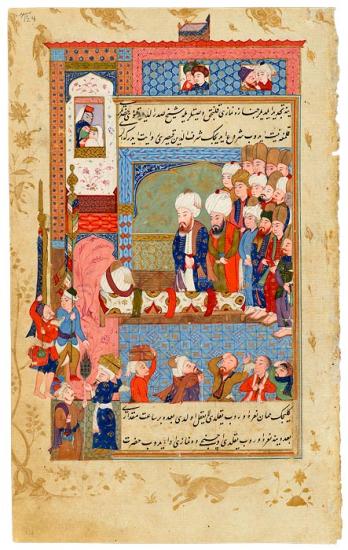
Mathnavi is a universal love hymn.
On the 750th anniversary of his death, the mythical poet, sage and spiritual master Rumi (30 September 1207, Belh region – 17 December 1273, Konya) is one of the most read poets in the West.
Leili Anvar attributes it to his sublime spiritual poise that transcends all religious norms. She is known for her scholarly translations, her profound knowledge of mystical Persian literature, and life and spiritual personality of Rumi. In the preface of her book Rumi, the Religion of Love , she describes the epoch he lived in Anatolia.

Rumi lived in a world where the spiritual, the sacred and the supernatural were part of life. Not that the people of the 13th century were so different from the people of today since their material concerns and moral aspirations were the same. But they were culturally more disposed to interpret reality in a spiritual way.
Religious and spiritual questions constituted the fabric of existence and gave meaning to life. This is how they received the words of the great mystics. Especially the environment in which Rumi grew up and evolved was one where the major concern was the spiritual order. All his work testifies that he had opted for a life dedicated to overcoming earthly attachments.
[…]
Poetry is not an art of ornament or a nice pass-time for Rumi. It is a spiritual necessity, a cry that overflows from his boiling soul and carries away everything in its path. The incandescence of his work is the reflection of his inner burning.
He emphasizes the virtues and transforming power of eternal love on the path of spiritual perfection. As one transcends his ego, he becomes detached from sensual love, and worldly attachments.
One must experience eternal love in order for the veils to be lifted, for the eye of insight to be opened, for unity with the creatures and the Creator, for knowing how to be oneself, for being the world within oneself and being more than this world…
Death is a reunion with one’s eternal Love, a return to the “Unity shop” where the seller and the buyer are the same. It is liberating for the soul as it slips out of its thick black garment only to leave it on the earth. Viewing life from this perspective, Rumi cites the following verses to his close ones and friends in his sick bed just before his death:
Don’t cry : “ Woe, parted !” at my burial
For me, this is the time of joyful meeting !
Don’t say : “Farewell” when I’m put in the grave.
It is a curtain for eternal grace.
He explains the cycle of life and death, from dust to grain, to wheat, and the stages of cooking and becoming of the soul, to those around him :
If wheat grows from dust, and if it is baked
As bread – intoxication will increase.
The dough intoxicated ! and the baker !
The oven too would sing ecstatic hymns !
When you come to my tomb to visit me
Don’t come without a drum to see my grave,
For at God’s banquet, mourners have no place.
Rumi left this world on the evening of December 17, 1273. Everyone in Konya, including Christians, Jews and Muslims, attended the funeral. His son Sultan Veled (1226, Larende – 1312, Konya) recounts :
The people of the city, young and old
Were all lamenting, crying, sighing loud,
The villagers as well as Turks and Greeks,
They tore their shirts from grief for this great man.
“He was our Jesus !” – thus the Christians spoke.
“He was our Moses !” said the Jews of him… (VN 121)

Anne Marie Schimmel (1922-2003), Harvard professor known for her studies on Islam and Sufism, devoted the years she spent in Turkey to studying Sufi Literature and Rumi. She compiled information from the biographical works written by Aflâki (1360) and Sultan Veled (1280) and presented a massive work of translation on Rumi’s life and works. In her book I Am Wind, You Are Fire, she tells us the following story about the bond that Rumi established with all creation :
Rumi’s cat, came to his deathbed shortly before Rumi’s passing and lamented bitterly. Whose sad meowing Rumi had translated for his friends as an expression of the little animal’s yearning for the eternal home. She refused food after her master’s passing and died a week later. Malika Khatun, Rumi’s daughter, buried her close to him.
Rumi spoke to everyone around him, understood the silent language of every creature and knew how to interpret and translate it.
Annemarie Schimmel describes the spiritual transformation Rumi experienced in his life and the effect of the Sun’s rays on him as follows:
An ancient eastern belief teaches us that the sun can transform ordinary stones into rubies, provided that the stones can patiently endure the long period required to receive these rays and mature. Rumi himself was transformed by the touch of the spiritual Sun, and he too had attained the transcendence that could transform everything that approached him; stones to jewels, copper to gold, bread to the soul…
Rumi describes the transformation brought about by eternal love in these blazing couplets :
For love, the snake turns into an ant
For love, the demon becomes an angel
For love, the dead are resurrected
For love, the master becomes a slave.
(From Mesnevi II, Leili Anvar translation)
Duygu Bruce
If you would like to read more about Rumi’s life and works, you can find them in the links below :
https://savantsandsages.com/2021/02/06/the-dancing-poet-savant-and-mystic-rumi/
https://savantsandsages.com/2019/01/31/the-medicinal-herbs-of-king-solomon/
https://savantsandsages.com/2022/10/29/the-guest-house/







